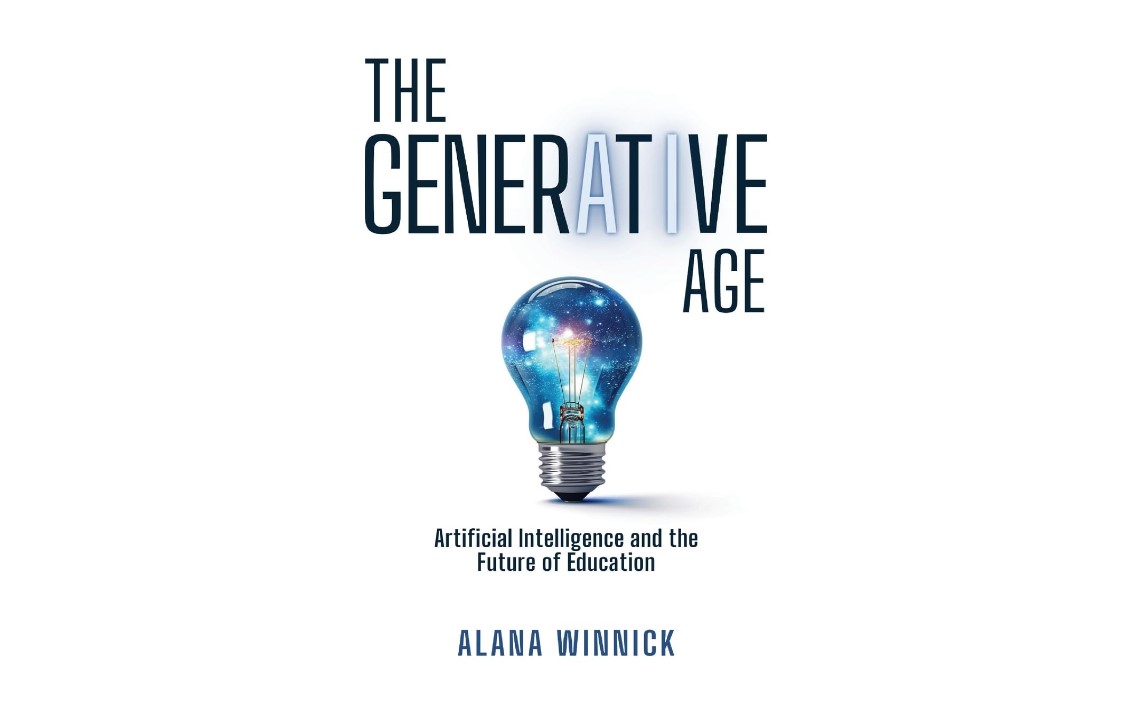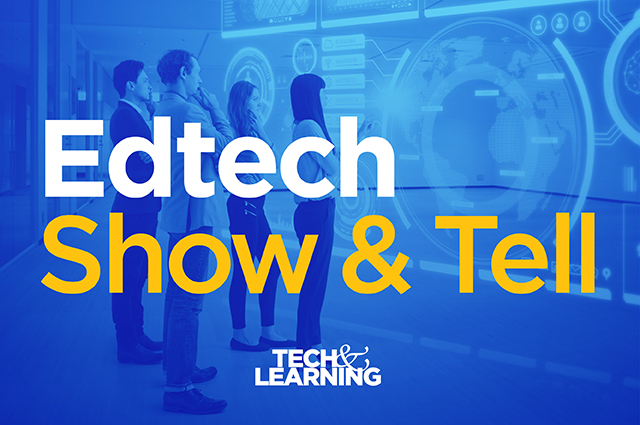She Wrote A Book About AI in Education. Here’s How AI Helped
INNOVATIVE LEADER AWARD WINNER - Alana Winnick was able to write "The Generative Age: Artificial Intelligence and the Future of Education" in under a year because she used AI to make her writing process more efficient.

Tools and ideas to transform education. Sign up below.
You are now subscribed
Your newsletter sign-up was successful
Educator and edtech expert Alana Winnick never considered herself much of a writer. Even so, she was able to write The Generative Age: Artificial Intelligence and the Future of Education at warp speed. This was thanks to, well, AI.
Winnick is more comfortable speaking than writing, so she used an AI-powered voice-to-speech transcription tool on Google Docs to capture her words. “I dictated it on the page, I took that, I ran it through an AI to remove my filler words and make me sound more professional,” says Winnick, Educational Technology Director at the Pocantico Hills Central School District in New York. “Then I would go back and edit it.”
Winnick received the Innovative Tech Director Award, one of Tech & Learning’s Innovative Leader Awards, during the recent Northeast Regional Leadership Summit in New Jersey. She was honored for her work promoting effective and responsible AI use in the classroom as well as her larger efforts to use edtech to promote innovation in education.
AI and Saving Teacher’s Time

Throughout her career, Winnick says it has been a challenge to get teacher buy-in when it comes to various edtech tools. That changed for a time during the pandemic, except when things returned to normal, many teachers drifted away from technology again. That has not been the case with AI.
“This was actually the easiest buy-in I've ever gotten, because I'm like, ‘This is going save you time,’” she says.
For example, she has shared a fill-in-the-blanks AI prompt that teachers can use to create AI-assisted units in minutes, complete with lesson plans and detailed activities appropriate for various grade levels. Of course, teacher expertise is still needed to fine-tune these lesson plans and correct mistakes AI might make.
While this process is often called “curation” Winnick calls it DJing. “You might run the same thing through multiple AI, and be like, ‘Oh, I like that, I like that, and I like that,’” she says. “You're picking and choosing your own beats and making your own mixtape.”
As a bonus, when educators are incorporating AI with students, using the DJ analogy is also more fun than the term curation.
AI Tips For Students
When using AI in an educational setting, student safety and being aware of bias are paramount. “I think that every user, students and teachers, need to understand bias and misinformation in AI before they can use it for good,” Winnick says. “They need to know that we're detectives. We need to analyze everything that the AI is outputting to make sure that there is no bias, there's no misinformation.”
Once this solid digital literacy/AI literacy foundation in place, there are many potential uses for AI. For example, Winnick likes to help students improve their writing skills by having them write prompts for AI art. When the prompt does not turn out the way they want it to, they realize instantly that they need to be more clear in their descriptions. It’s a form of instant writing feedback that also inherently inspires students, Winnick says.
Building An AI-Supportive Culture and More
While there are many concerns around cheating and AI, Winnick says educators can bypass many of these by focusing on the process over the final product. By assessing that process and being a part of it, educators can help students use AI to effectively enhance their projects and not just spit out answers to essay questions.
Winnick says effectively bringing AI into the classroom in your school is about far more than AI technology on its own. Administrators should empower teachers, and teachers should empower students to share their expertise and guide classroom experience, Winnick says.
Ultimately, she says you want to build “a culture with your teachers, that allows them to not be afraid to try new things.”
Tools and ideas to transform education. Sign up below.
Erik Ofgang is a Tech & Learning contributor. A journalist, author and educator, his work has appeared in The New York Times, the Washington Post, the Smithsonian, The Atlantic, and Associated Press. He currently teaches at Western Connecticut State University’s MFA program. While a staff writer at Connecticut Magazine he won a Society of Professional Journalism Award for his education reporting. He is interested in how humans learn and how technology can make that more effective.

